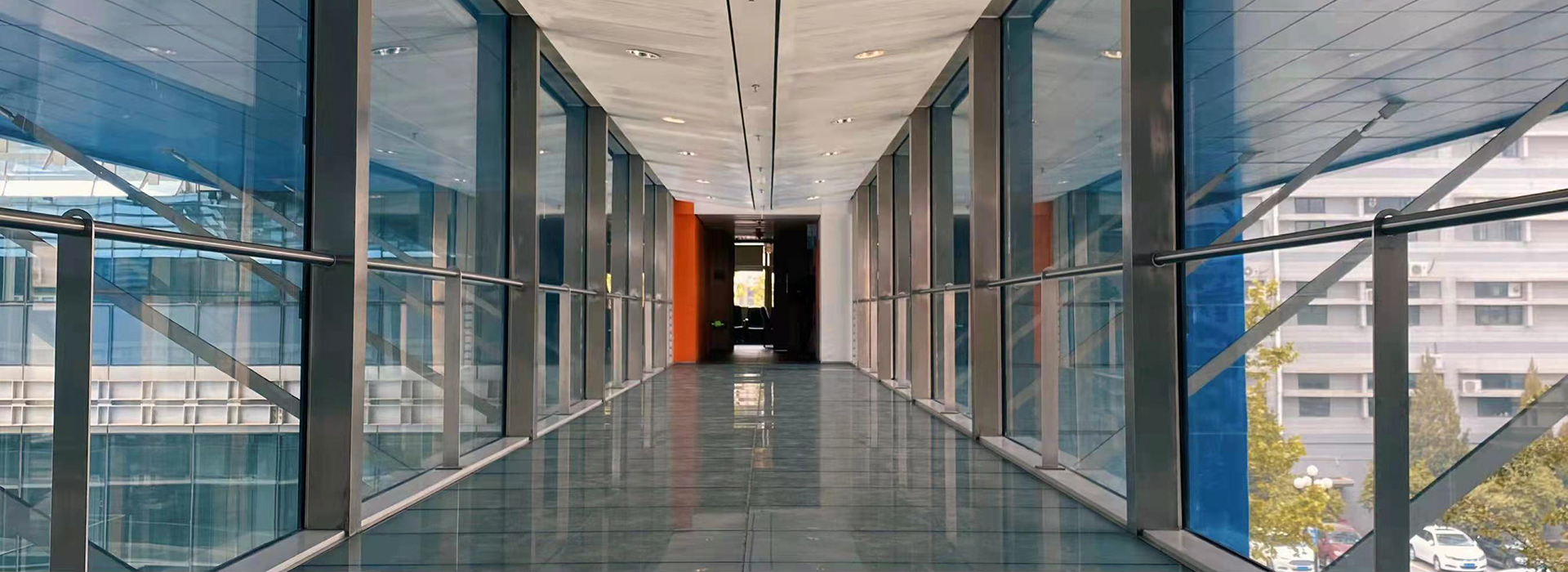The 18th Persistent Organic Pollutants Forum and Chemical Environmental Safety Conference (“18th POPs Forum” for short) was held in Guiyang from May 17 to 19, 2024. Marking one of the academic activities celebrating the 40th anniversary of the School of Environment, Tsinghua University, this conference was jointly hosted by the POPs Research Center at Tsinghua University, the POPs Specialized Committee of the Chinese Society for Environmental Sciences, the Advanced Interdisciplinary Institute of Environment and Ecology at Beijing Normal University, the State Key Joint Laboratory of Environmental Simulation and Pollution Control, the Beijing Key Laboratory of Emerging Organic Contaminants Control, and the Beijing Laboratory of Environmental Frontier Technologies,;and was organized by the School of Environment, Tsinghua University, the College of Resources and Environmental Engineering, Guizhou University, and the Research Institute for Environmental Innovation (Suzhou) Tsinghua.
Under the theme of “Commemorating the 20th Anniversary of the Stockholm Convention”, the conference is aimed to provide a platform for exchanges and discussions among the POPs academia, industry, and regulatory authorities, so as to promote scientific research, industrial development, and decision-making support in the field of POPs, as well as find new solutions to the implementation of the Convention and the containment of Emerging Contaminants (ECs). Over 800 representatives from domestic and international universities, scientific research institutions, government agencies, and POPs-related enterprises attended the conference.

The Opening Ceremony
During the opening ceremony, speeches were delivered by Zhou Shaoqi, Vice President of Guizhou University; Xia Zuyi, Secretary-General of the Chinese Society for Environmental Sciences; and Xiao Xuezhi, Chief Scientist at of the Foreign Environmental Cooperation Center, Ministry of Ecology and Environment.
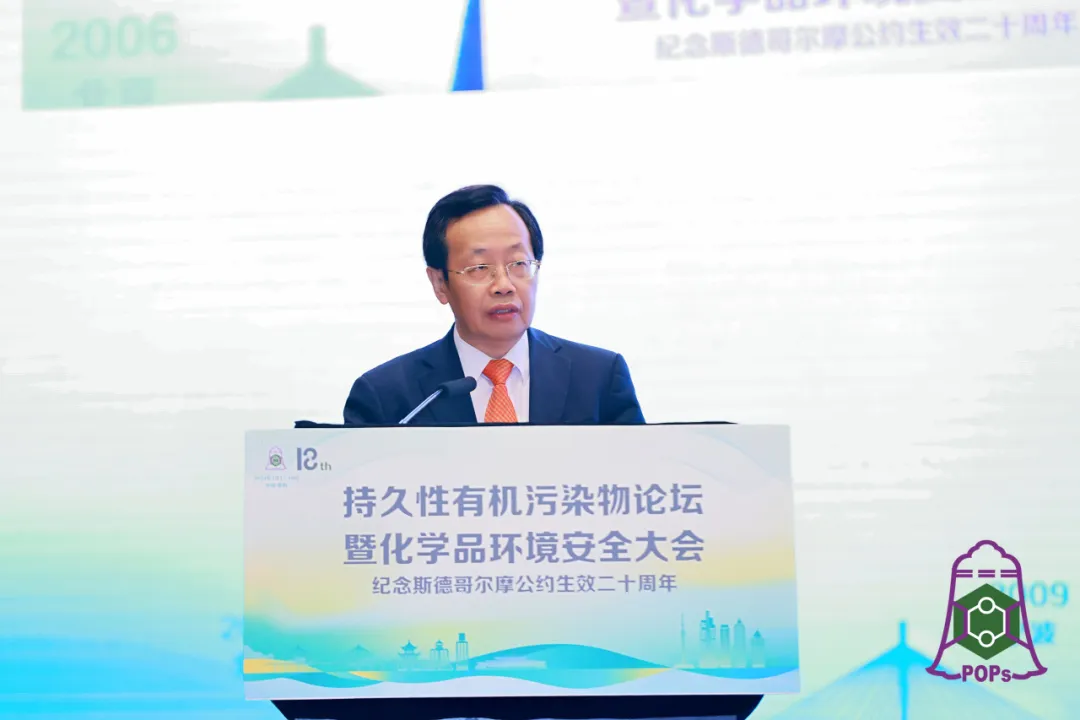
Zhou Shaoqi delivers a speech
Zhou Shaoqi emphasized that the POPs Forum is a crucial platform for discussing R&D trends of POPs, exploring new strategies for POPs control, and enhancing international cooperation in chemical environmental safety management. He expressed his hope that the attending experts and scholars would engage in comprehensive exchanges to contribute more to addressing the global challenge of POPs.
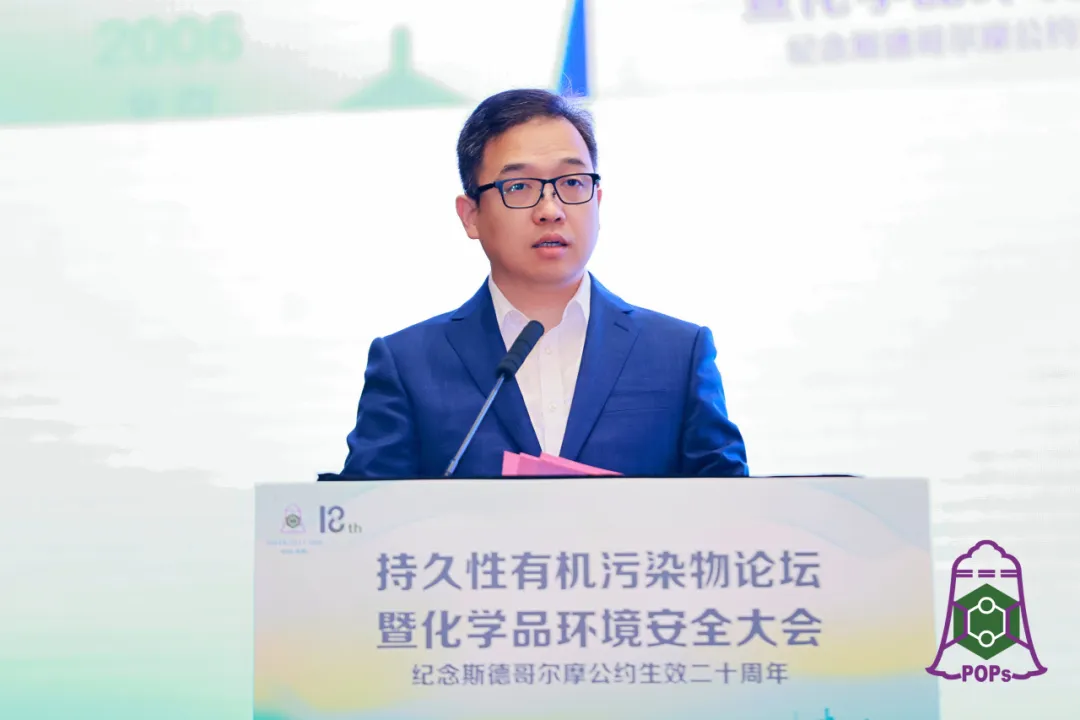
Xia Zuyi delivers a speech
Xia Zuyi highlighted China’s significant attention to ECs control and the considerable progress in POPs research achieved by Chinese scholars. He stated that the successful hosting of the POPs Forum would further promote academic prosperity, enhance collaboration between the government, POPs industry, universities and institutes, and advance China's commitment to the Stockholm Convention and ECs control.
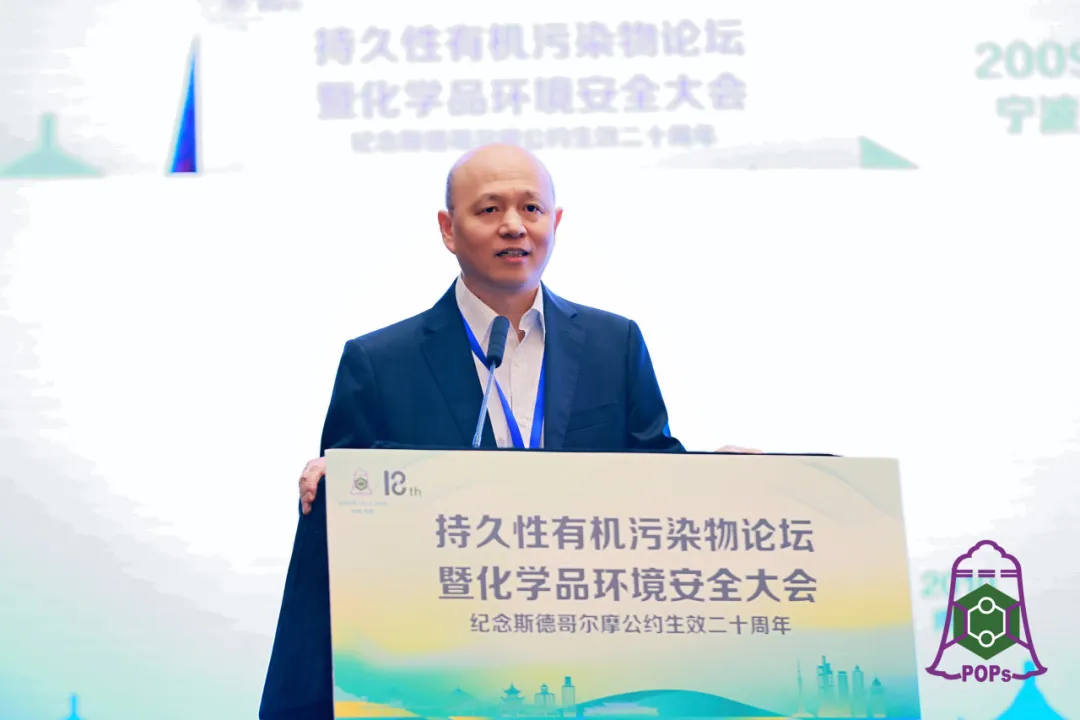
Xiao Xuezhi delivers a speech
Xiao Xuezhi reviewed the development of the POPs Forum and recognized the contributions of the POPs Expert Committee in implementing the Convention. He pointed out that while China has taken the lead in the research in the characteristics and risk assessment of POPs, there is still room for improvement in substitution and control technologies. He expressed hope that experts and scholars in relevant fields would continue to play a supportive role as part of their efforts to ECs control.
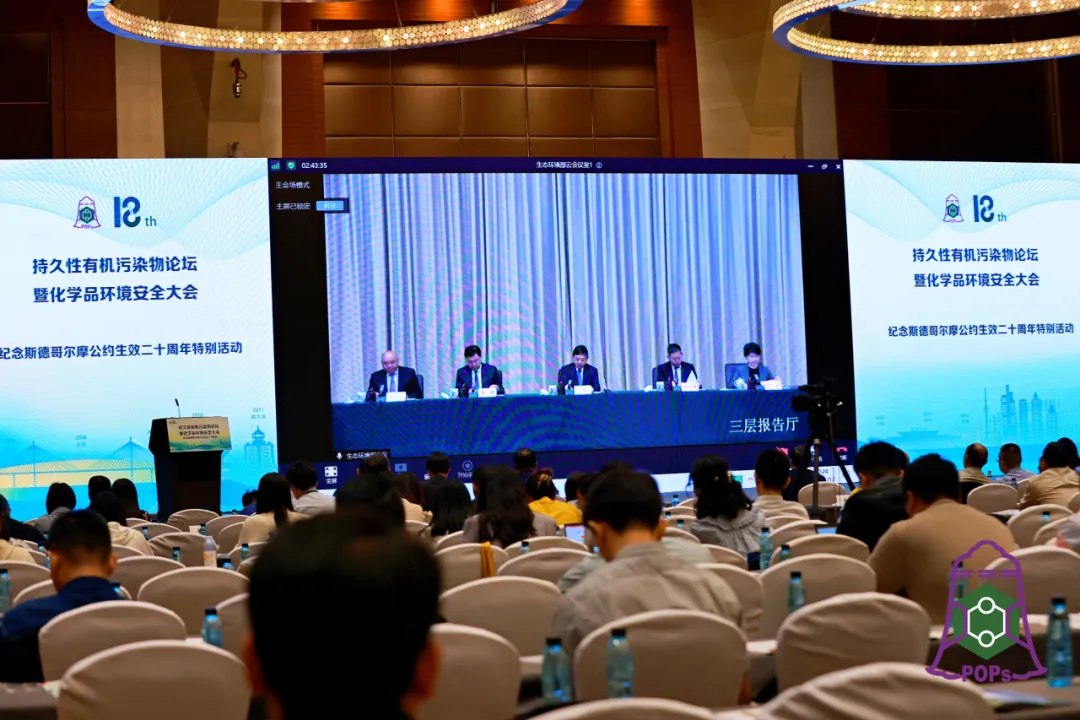
Special event held on the conference: “Commemorating the 20th Anniversary of the Stockholm Convention”
The conference coinciding with the 20th anniversary of the global entry into force of the Stockholm Convention, a special event was held during the conference’s opening ceremony to commemorate this milestone. The event included a live connection to the Ministry of Ecology and Environment, sharing the compliance experience of the Stockholm Convention, and the release of “Persistent Organic Pollutants Control in China (2004-2024).” This document comprehensively outlined China's principles, practices, and achievements in POPs control, affirmed the nation’s commitment to harmonious coexistence between humans and nature, as well as declared China’s continuous commitment to increasing POPs control effectiveness in many ways, like improving POPs control systems and promoting green alternatives at the source, and enhancing POPs control capabilities by strengthening regulation enforcement, supervision and technological support. The ultimate goal is to contribute China's solutions to global POPs control. Huang Runqiu, Minister of the Ministry of Ecology and Environment,attended the meeting and delivered a speech.Yu Gang, Chairman of the Expert Committee of the National Coordination Group for Implementation of the Stockholm Convention, Chairman of the POPs Specialized Committee of the Chinese Society for Environmental Sciences, and Chairman of the POPs Forum, also attended the meeting.
On the conference, speakers who made reports included Jiang Guibin, Academician of the Chinese Academy of Sciences, researcher at the Research Center for Eco-Environmental Sciences at Chinese Academy of Sciences, Deputy Director of the Expert Committee of the National Emerging Contaminants Control, and Advisor of the POPs Specialized Committee of the Chinese Society for Environmental Sciences; Hou Li’an, Academician of the Chinese Academy of Engineering, Deputy Director of the Expert Committee of the National Emerging Contaminants Control; and Zheng Minghui, researcher at the Research Center for Eco-Environmental Sciences at Chinese Academy of Sciences and Deputy Director of the POPs Specialized Committee of the Chinese Society for Environmental Sciences.
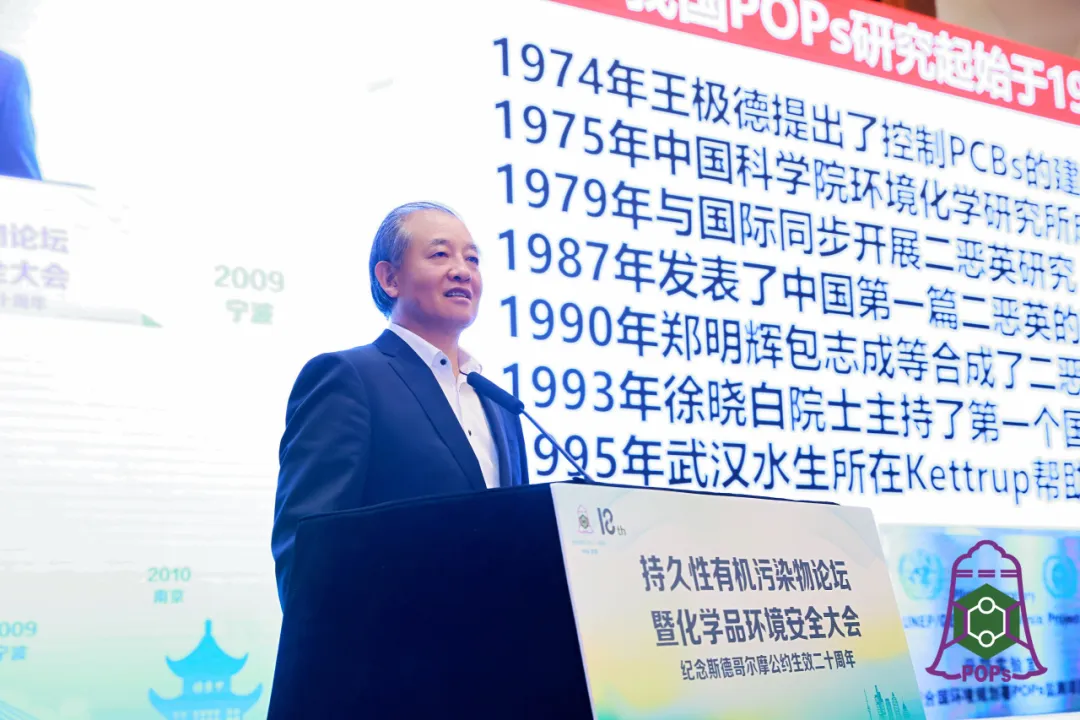
Jiang Guibin gives a report
Jiang Guibin presented on “Fundamental Issues in the Research of Emerging Contaminants”, detailing China’s research history of emerging contaminantsand highlighting the significant health threats posed by toxic chemical pollutants in the 21st century and the importance of ECs control for China's high-quality economic and social development. He stressed the need for science-oriented and basis-centered approaches to ECs research, with ECs control policies tailored to China’s national conditions.
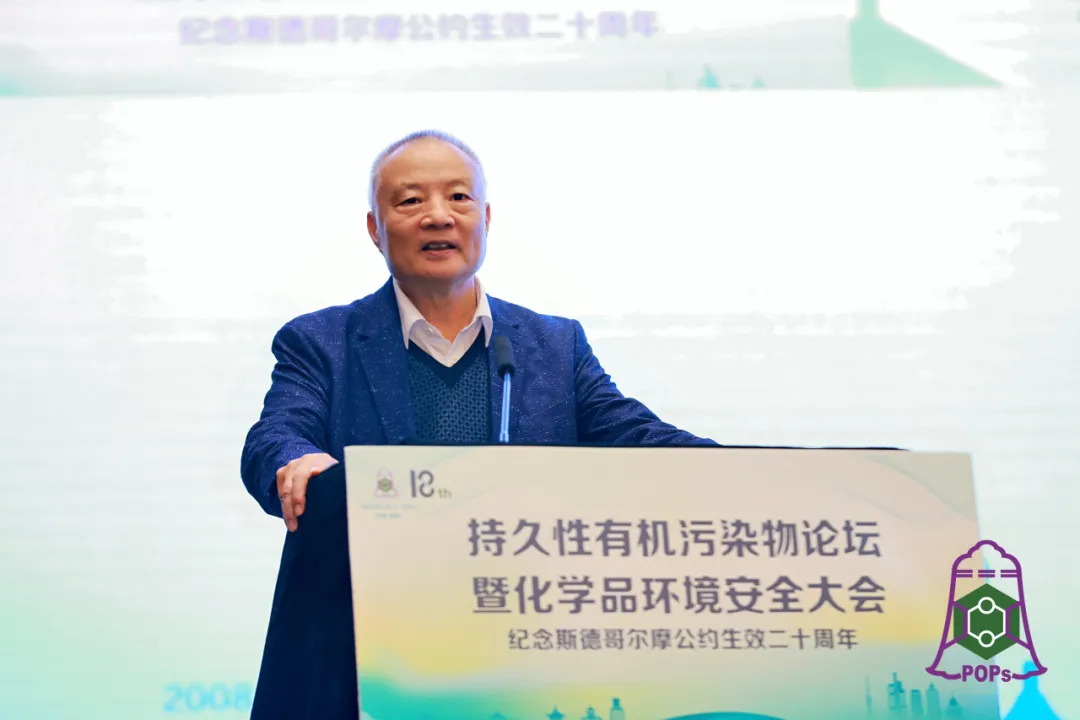
Hou Lian gives a report
Hou Lian delivered a report on the technical challenges and solutions for antibiotic-contaminated water treatment using new membrane technologies. He stated that membrane technology is one of the fastest-growing and most widely used water treatment technologies worldwide. However, due to unclear membrane separation mechanisms and issues like concentration polarization and membrane fouling, further application of membrane water treatment faces certain challenges. He identified three key difficulties, including insufficient development of advanced materials, imbalanced stages of membrane water treatment processes, and the technical bottleneck in concentrate treatment technologies. He proposed that future research should focus on the development and utilization of new materials and the recycling of retired membrane modules and concentrates.
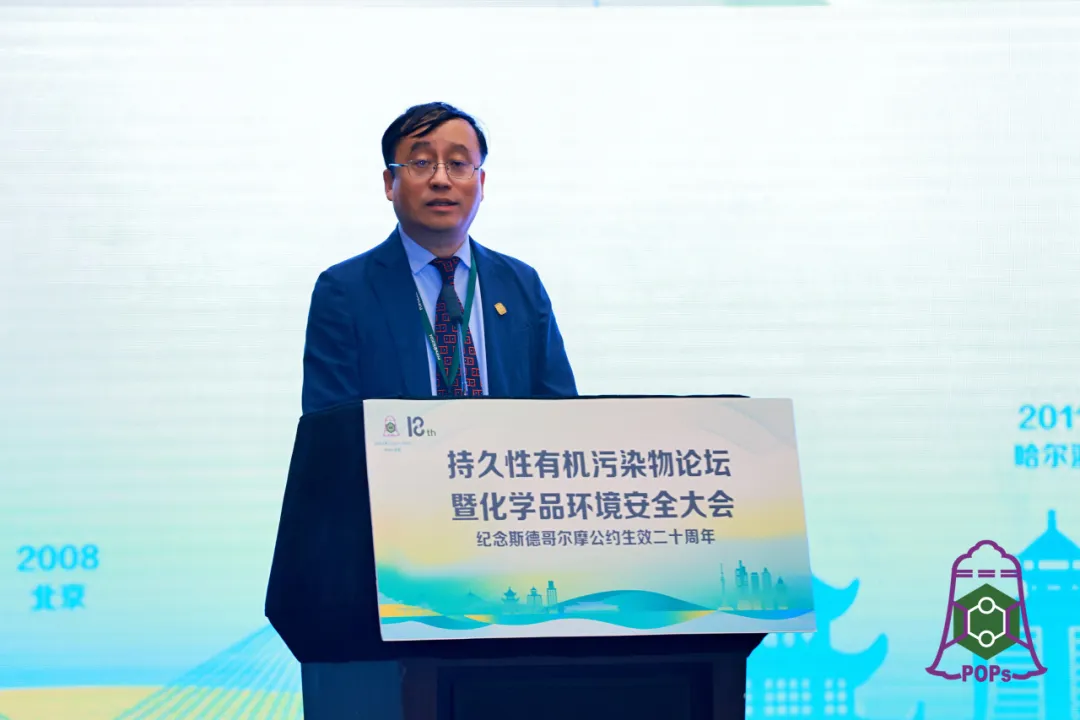
Zheng Minghui gives a report
Zheng Minghui reported on China’s history of POPs control, from dioxins to ECs. Using dioxins as an example, he detailed his research team's achievements in dioxin detection, emission factor studies, and emission inventory construction, which further extended to control strategies for other ECs, promoting development and innovation in ECs control methods. He proposed to develop practical technologies for ECs control in industrial processes to reduce their generation from the source.
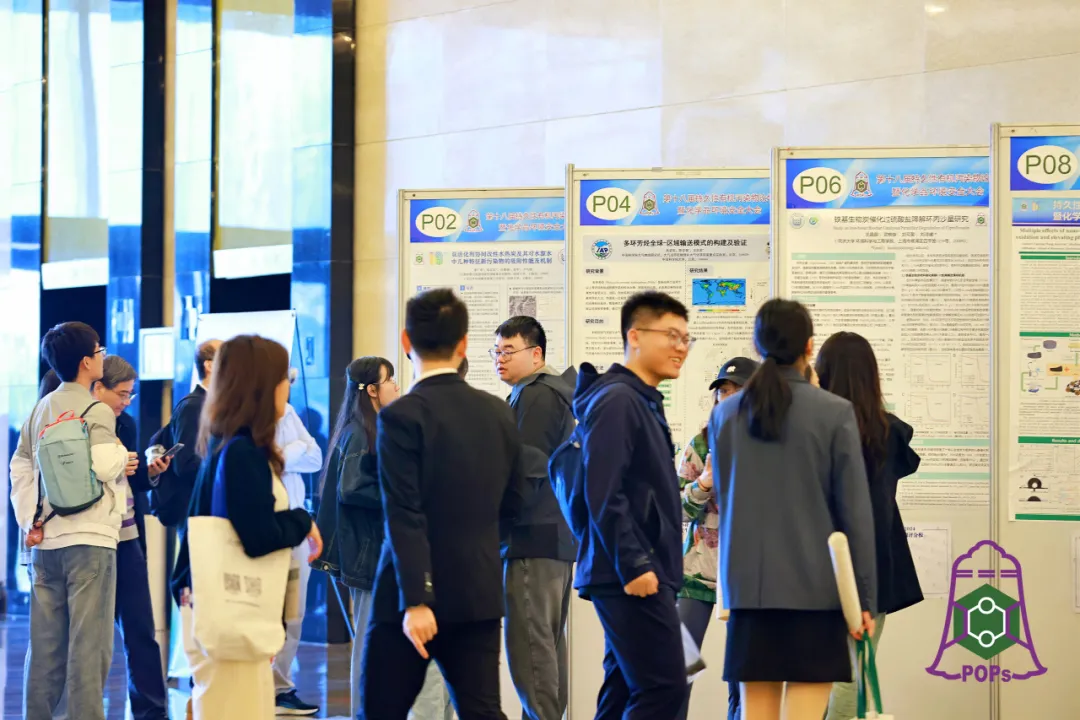
Poster Display Area
During the forum, representatives engaged in lively discussions on 15 topics, including “Analysis of Environmental Organic Pollutants and Pollution Characteristics”, “Environmental Behavior and Migration of Organic Pollutants”, “Toxicological Effects of Organic Pollutants and Health and Ecological Risks”, “Alternative and control technologies for POPs.”, “Emission Reduction Technology and Practice for By-product POPs”,
“Toxic and Hazardous Chemical Waste Disposal and Remediation Technology”, “Environmental Risks and Control of Pharmaceuticals and Personal Care Products (PPCPs)”, “Implementation Strategies and Regulation of POPs”, “Emerging contaminants Control”, “Environmental Behavior and Effects of Emerging contaminants in the Marine (Polar) Environment”, “Per- and Polyfluoroalkyl Substances (PFAS) Contamination and Its Control”, "Occurrence and Control of Emerging contaminants in Soil and Groundwater," "Environmental Effects and Risk Assessment of Pesticides," "Micro plastics and Additives," and "Occurrence, Risks, and Control of Emerging Contaminants in Lakes and Wetlands." The conference received a total of 330 papers, featuring 287 presentations (including 9 conference presentations and 278session presentations) and 58 wall poster presentations.
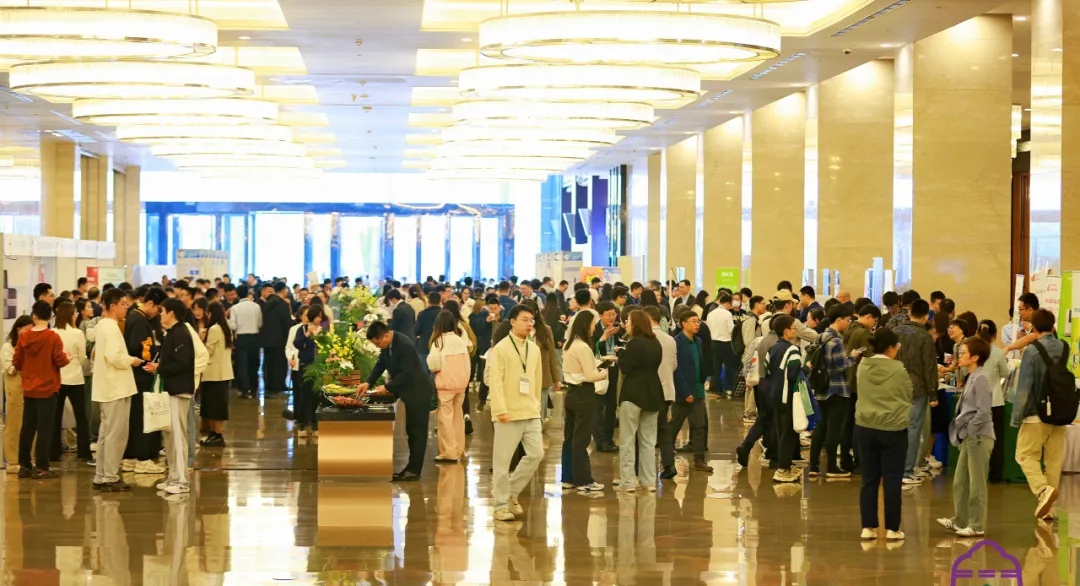
Corporate Exhibition and Exchange
The conference was co-organized by renowned domestic and international companies and research institutes, including Key Laboratory of Polluted Environment Remediation & Ecological Health Industry and Information Technology Division at the Jiangsu Environmental Engineering Technology Co., Ltd., Wellington-China, Bruker (Beijing) Scientific Technology Co. Ltd, Thermo Fisher Scientific (China) Co., Ltd., Agilent Technologies (China) Co., Ltd., Shimadzu (China) Co., Ltd., Waters (Shanghai) Co., Ltd., Hangzhou Hunter Biotechnology Inc., and Shenzhen Institute of Environmental Science - National Environmental Protection Technology Key Laboratory of Drinking Water Source Management,. The forum featured corporate exhibition halls and exchange venues, where companies introduced and promoted their latest equipment, products, and technologies through technical reports and product displays, engaging in extensive communication with representatives to address application needs and issues.
At this critical moment marking the 20th anniversary of the Stockholm Convention, the conference not only reviewed and summarized the achievements of POPs control over the past two decades but also explored and discussed the future roadmap. It is expected that the outcomes of the exchanges and discussions from this conference would provide more technological and strategic support for POPs implementation and ECs control in China.



